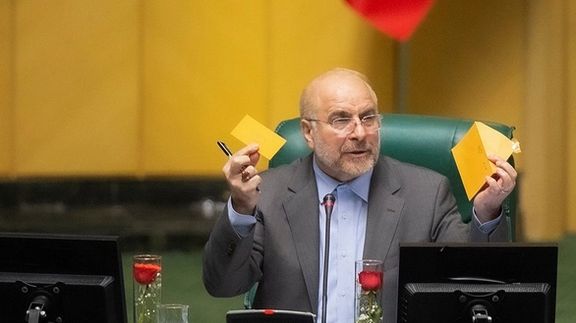Fate Of Iran's Hijab Bill Hangs On Government Financing

The completion of Iran's controversial Hijab bill depends on its financial endorsement by the government, a step that has yet to materialize, speaker of the Iranian parliament said Sunday.

The completion of Iran's controversial Hijab bill depends on its financial endorsement by the government, a step that has yet to materialize, speaker of the Iranian parliament said Sunday.
Parliament Speaker Mohammad Bagher Ghalibaf announced that the parliament insists on the prompt approval of the bill's financing.
“We have sent a letter to the government regarding Article 75 (acceptance of financial liability) more than 25 days ago, and they have not yet responded,” he added.
In September, the Iranian parliament passed a bill titled "Protection of Family Through Promotion of Hijab and Chastity Culture." The legislation included penalties, notably hefty fines, for violations by women.
But the bill's enforcement needs hijab agents in streets and public venues, as well as other expenses, which might prove a challenge for the cash-strapped government.
The bill faced an unexpected setback when the constitutionally mandated Guardian Council, comprising 12 members with ultimate legislative authority, rejected twice. The Council cited ambiguities within the text, prompting a call for revisions by the parliament.
While some speculate the rejection stems from procedural issues, others suggest that the Guardian Council may be exercising caution amidst concerns of potential public unrest leading up to the parliamentary elections in March.
The enforcement of hijab regulations has intensified following widespread protests in Iran since the death of Iranian-Kurdish Mahsa Amini in 2022. Amini's arrest in Tehran, reportedly for defying the mandatory hijab law, ignited one of the most significant uprisings in recent Iranian history.
Women across the nation have been actively challenging the compulsory hijab, resulting in a heightened presence of hijab enforcement personnel in public areas such as subway stations.